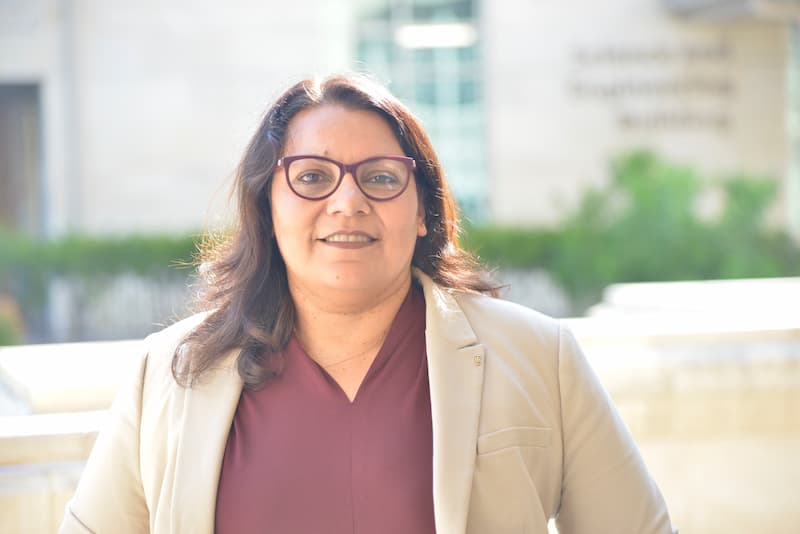Posted on August 20, 2025 by Sean M. Wood

Karina Vielma, Award Recipient
Assistant Professor of Engineering Education Karina Vielma earned a prestigious National Science Foundation CAREER Award to research the career decisions of engineering undergraduate students and faculty. This grant is awarded to early-career faculty who are seen as the future leaders in their field. The goal of Dr. Vielma’s work is to develop tools to train educators and advisors to support economically disadvantaged students to succeed in engineering careers.
Vielma said she learned engineering students from low-income backgrounds had different considerations when weighing critical opportunities for their careers. Those include summer internships, research experiences and even tutoring. Students from low-income backgrounds had commitments to consider such as work, taking care of family members, long commutes, and other responsibilities.
“I was also a low-income student, but I hadn’t considered how this played a role in their decision-making,” she said. “So, when I was looking at my CAREER proposal, I came across a behavioral economics concept called the scarcity mindset.”
Students who are pressed for essential resources like money or time tend to make decisions differently, Vielma explained.
“I looked at my data and wondered what things we can do differently for low-income engineering students, in our classrooms, the way we teach, the way we design assignments, that can support students who fall into this scarcity mindset,” she said. “And not just low-income students go through this. It happens to students when they lack time [or resources].”
There are three main elements to Scarcity Theory:
- Trade-off thinking—Compromising one task for another
- Tunneling—Focusing on one task or decision to the detriment of others
- Bandwidth tax—Overloaded, so it’s not possible to make a clear decision
Vielma noted that exceptional students at Klesse and UTSA, who come from low-income backgrounds, are often the first in their families to attend college. They may work full-time while pursuing their education full-time and may be grappling with scarcity mindset when considering critical career decisions.
“They’re working toward their engineering degree to help with their social mobility,” she said. “They want to help their families and live a more stable future, and Klesse College provides this opportunity with the education we provide our students. We can do better by providing more focused support, particularly in understanding what it’s like to support a family while working toward a degree. We don’t want students to leave UTSA.”
“The NSF CAREER award is a prestigious award, recognizing the top early-career faculty who are poised to become leaders in their fields. Dr. Vielma performs high-impact research and deserves this level of recognition,” said Eric Brey, dean of Klesse College. “Her work will provide opportunities for so many students both in Klesse College and throughout the nation based on the transformative impact of an engineering degree on economically disadvantaged students."
The research won’t be limited to UTSA. Vielma said the plan is to “cast a wide net” and survey engineering students across the country at different stages in pursuit of their degrees. She expects to be able to connect with many of the students regarding their experiences.
“I want to help students succeed despite the economic disadvantages they may have,” Vielma said.

